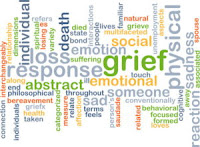SCHOOL COUNSELORS: Providing the Direction Needed Most
One immensely important area of counseling is school counseling. Invaluable to students and the progress they make, School counselors go beyond helping people who are having problems. School counselors facilitate the process of guiding young people in the critical decision-making of choosing a career and organizing an intelligent academic game plan to help them reach their goals. School counselors help students navigate the circuitous and often challenging twists and turns of their school careers.
Another integral task performed by a School Counselor is conducting assessments and evaluations. A strong school counselor helps discover the strengths of the student and helps determine which environment maximizes the student’s opportunity to thrive. School counselors develop programs and facilitate workshops (on topics such as choosing the best college). School counselors can also be important advocates for students. School counselors can make the difference in what university a student chooses to attend and whether they even go through the process of completing their applications. A school counselor is often the greatest source of inspiration to a student.
According to The Bureau of Labor Statistics, employment of school and career counselors is projected to grow 8 percent from 2014 to 2024. Currently, The BLS reports that the median pay for a school and career counselor is $53,660 per year.
There are different avenues through which to pursue this highly satisfying field of School Counseling.
BECOMING A SCHOOL COUNSELOR
When working as a counselor with students in a public school setting, you will usually need licensing through your state’s department of education. If you want to work entirely in this setting, the best option is quite likely a Master’s in school counseling. Remember, that the higher the education you pursue and accomplish, the more career options you will have. Education is power!
Many states require a licensing exam. This could be the Praxis, NTE, or a state exam. You’ll want to be familiar with your state board from the very beginning and understand its specific requirements. Becoming a member of the American School Counselor Association is always a good idea in order to stay up on the latest news in this field.
Are you more interested in working in a university setting or a social service setting? Figuring out your path now will save you time in the long run. In some settings, you may not need a license. It’s something to think about as you move forward in your career; though, of course, you will always be at a distinct advantage by having that license. Having the license will empower you with greater flexibility to pursue different directions in your career. If you enroll in a CACREP-accredited school counseling program, you may be eligible for licensing as a professional counselor. Requirements vary from state to state. CACREP-accredited career counseling programs are at least 48 semester hours.
Some may choose to go into private practice as a school counselor. Usually In these cases, one will likely be licensed by his, or her, state’s professional counseling board. You will want to make sure that the program meets all guidelines/standards and will qualify you to sit for the licensing exam.
There are options to combine school and mental health counseling. You can search on the CACREP site for further information on these creative possibilities.
One viable education option is Kent State University’s Master of Science in School Counseling.
Another excellent option is Liberty University’s Master of Education in School Counseling.
Also check out Capella University’s Master of Science in School Counseling.
ACCOMPLISHING LICENSES AND CERTIFICATIONS
After graduation, you are advised to seek out additional required licenses and any other credentials that will increase your employment options. Many states require the National Counselor Examination for full credentials as a Licensed Professional Counselor. Depending on where you want to practice, you will need to investigate what exactly is required.
If you are going for state licensure as a professional counselor, you will need to work under professional supervision, usually for at least two years. If you’re only pursuing a school counseling license, this step may not be necessary.
The National Board for Certified Counselors offers the National Certified School Counselor credential. It is also required that you attain the National Certified Counselor credential.


